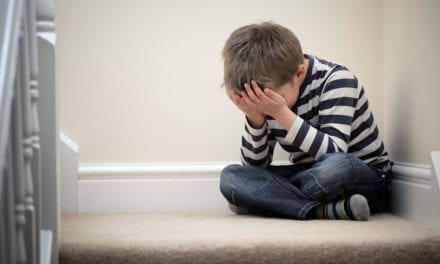Most families I speak with are struggling with their schedules and the sense of being out of control. When asked about how they feel about their lives, it’s usually like this; ‘We are just too busy. It’s a constant rush from here to there…but what can you do? It’s life these days!’ And the Holiday Season seems to push many of us over the edge, as we add even more to our lives.
Many of us grew up in a world where the schedule of academic work, extracurricular activities, and practices were not as demanding as it is in today’s culture. In that ever-increasing world of demands, we constantly add more activities that compete with family time. Thus, by the absence of attention and action, the importance of family has been diminished in many homes. The same may be true this Holidays Season when we look at how we spend our time.
Does Family Time Matter?
Often I am asked whether there is clinical data to substantiate the conclusion that the loss of family time is harmful to children. The simple answer is a definitive yes.
Family time helps children cherish time with the family.
This is just plain common sense: You teach what you value based upon where you put your time and energy. The more parental energies are scattered among dozens of other activities, with little time devoted to family time and family activity, the more the message to your children becomes clear: family time is low on the priority list. The lesson has been taught.
There is ample research to support the conclusion that children will grow up and tend to engage in adult patterns of living that are consistent with their childhood lives. If you want your kids to truly value time with the family and have pleasant memories of family activities, it is essential to commit time to these activities. No time invested in these activities leads to the obvious: No value is placed upon the family by the child.
Family meals together are healthy for children.
Research suggests that children who experience family meals together tend to have more positive outcomes when compared to children who don’t have those experiences.
Family meals are an opportunity to connect, share common interests, and support one another. In my opinion, this research simply reflects what we all fundamentally know to be true: It is good to share family time because we share our caring, our wisdom, and our advice.
Talking openly about family history creates a sense of unity.
Studies also suggest that discussions about family history and family evolution seem to strengthen family relationships. Another study concluded that sharing family stories produced a remarkably positive effect on middle schoolers and young adolescents: There is an enhanced sense of family unity and respect in the home, and this was reflected in positive outcomes for children.
Discussing positive and negative realities is beneficial to children.
Children need to experience parents who can talk about real-life events. It is important not to pretend that painful events do not occur. They do happen. Sharing both the positive and the negative is of benefit to children.
When there are positive events in the family or the world, focus on these and discuss these as a family. Ask children what they have learned from these events. Ask probing questions that get your kids to explore what values they can pull from these events. While you can have opinions, make sure you remain curious and encourage ‘effortful thinking with quality questions.
Likewise, when there are major negative events, discuss these with your children. Use these opportunities to teach children about resilience. They learn that many families experience tough times and that changes can occur in our society, and yet we get through it. I encourage you to repeatedly emphasize: We will get through this.
Family time gives us a chance to demonstrate our deepest values.
What better time to teach the values we cherish, than in the time we spend with our children. If we care about family, we spend time with family. If we care about nature, we spend time there as a family. If we care about our community, we invest time there as a family. We do all this as a family because this is how we teach those deepest values we hold. We don’t do it by just talking about it.
Our Children Value What We Have Invested In
Spending time together has a positive effect on children and their futures. And it should come as no surprise that our children will value what we have spent our time investing in. How could they truly value something we rarely get around to doing?
The momentum of life can feel like a run-away train and thus feel out of control. And yet, we can throttle back that train at any time, if we have the courage. For many, this will be the only way to bring the family to the forefront. In other words, something may have to go.
Many children today value screen time more than time with family. Sports are more important than family time. The list could go on.
All this comes with a consequence that many of us will be sad to witness, as the years unfold. And yes, the Holiday Season is a great time to pause, examine your family patterns, and decide if you want your family to be different. Who knows what a few simple adjustments could do for your family next year?














